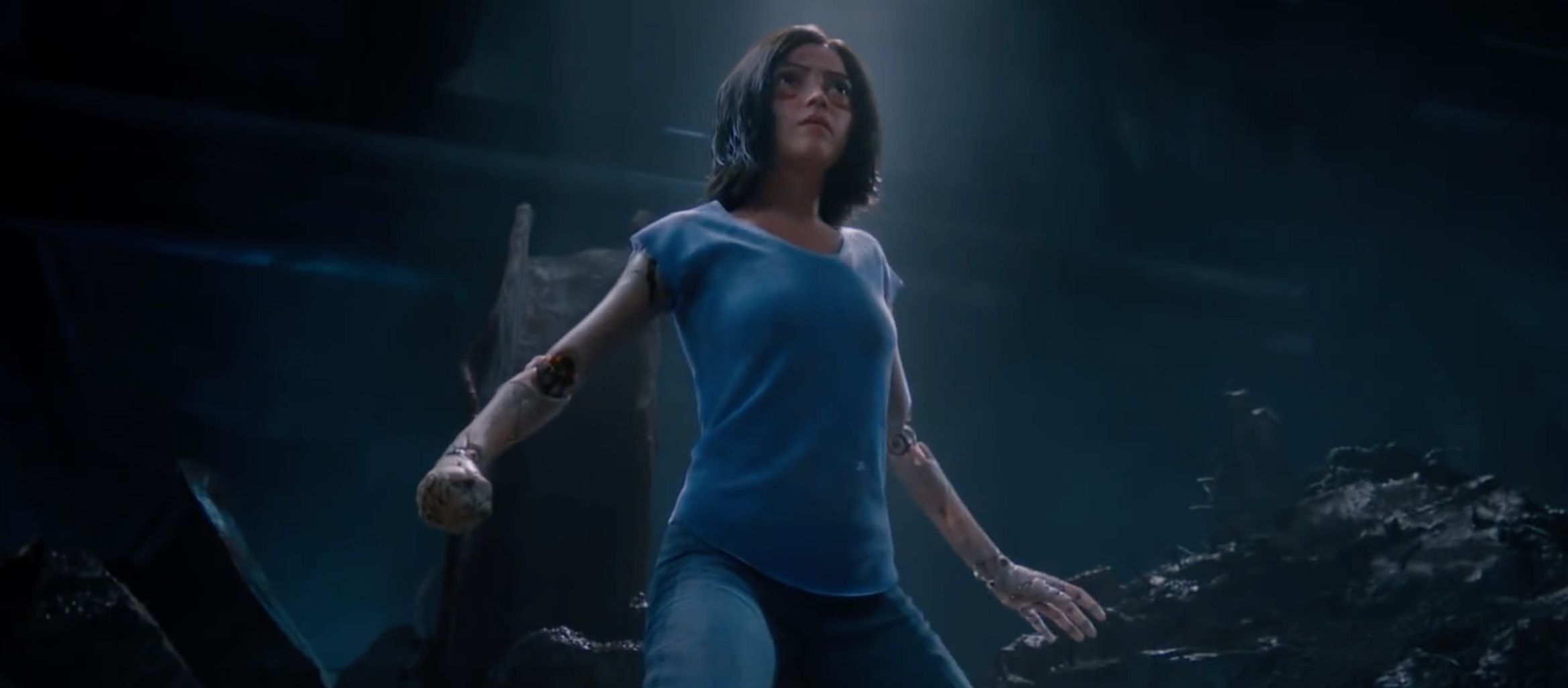Create a free profile to get unlimited access to exclusive videos, sweepstakes, and more!
Alita: Battle Angel reviews: Does it go on the shelf, or back in the junk pile?

What says romance better than cyberpunk? Nothing does, and perhaps it's for that reason that the cyberpunk action romp Alita: Battle Angel is coming to theaters on Valentine's Day. Based on the manga called Battle Angel Alita, this new adaptation is directed by Robert Rodriguez and was written by Rodriguez, Laeta Kalogridis, and James Cameron, who also produced.
Since the film is only two weeks away, the reviews have started to come in. So does Alita slice and dice with her eyes drawn wide, or is the whole thing an empty spectacle that should've been left on the junk pile? Let's see what the critics have to say.
*SPOILER WARNING! From this point forward, there will be spoilers for Alita: Battle Angel. It's a big collection of reviews, it is to be expected.**
The critics (so far) seem to agree that the film is fun and harmless, but that it is also a little empty and more than a little derivative.
Phil De Semlyen gives the film 2 stars (out of 5) for Time Out, and writes that for James Cameron, the movie comes "pretty darn close" to being boring. "Only its often bravura visuals and some sparky cyberpunk races keep it engaging," he writes, "until its umpteen story threads and endless mythology-meets-tech-porn jargon finally pound the interest out of you." He calls the dialogue "exposition-heavy and lumpen," adding that it is free of "killer payoff lines or jokey moments." Ultimately, De Semlyen writes, "You come out feeling like you’ve seen it all before."
Nicholas Barber has similar thoughts in The Wrap, writing that the film's cyberpunk concepts must have felt fresher when the original manga was written by Yukito Kishiro between 1990 and 1995. He believes that Rodriguez cut the film down from a version that used to be longer, as it "is stuffed with so many plot strands and so many different genres that it never gets moving." He questions why the titular character, played by Rosa Salazar, is done completely with CGI, with the enhanced wide doe eyes seeming off track: "Her sunny disposition is refreshingly unusual in this type of sci-fi, but her lackadaisical attitude towards her past life does sap the narrative of its urgency. If she doesn’t care who she used to be, then why should we?"
He did enjoy the cyborg effects of many supporting characters and the action, and writes that "the film has so much pulpy dynamism that you can enjoy the ride." He adds, "When the action stops, though, it’s obvious that nothing much adds up, and nothing much is resolved."
For Io9, Beth Elderkin writes, "The film’s only saving grace is the actual angel leading the way." She praises Rosa Salazar, writing, "Salazar’s Alita is the best thing here, and it’s too bad this movie didn’t do her justice." She immensely disliked a forced love story, and writes that while some action sequences and effects are great, other sequences
"feel tired, rehashed from better things, or doomed to irrelevancy the moment CGI technology surpasses it."
She adds that the film's reliance on exposition "comes at the expense of actual character development," and this is especially true of Alita’s relationship with Ido, played by Christoph Waltz. "The actor tries his best—there’s a moment with an orange that’s pretty cute—but he’s not given much to work with." She also writes that supporting actors Jennifer Connelly (Chiren) and Mahershala Ali (Vector) are wasted here.
Peter Bradshaw gives it three stars (out of five) in The Guardian, and writes that it "has been scavenged together from the body parts of other movies such as Blade Runner, RoboCop, Rollerball and of course Fritz Lang’s Metropolis, although that last one is now so deeply in the bloodstream of the futurist genre that identifying it as an influence is beside the point." He adds that it has an "air of teen innocence that surrounds an essentially conservative film – despite some rather macabre moments ..."
He agrees that Ali is underused here, but that Waltz "does perfectly well as the benign father figure." He seems unimpressed in the end, writing, "It might end up being put on for 13-year-olds as a sleepover entertainment. It doesn’t have the grownup, challenging, complicated ideas of Ghost in the Shell. A vanilla dystopian romance."
Karen Han was much more positive for Polygon, noting that adapting manga into live-action blockbusters is something that is rarely successful, referencing Death Note, Ghost in the Shell, and Dragonball Evolution. She writes that a literal approach was likely decided on here, focusing (once again) on Alita's eyes, which are "the size of dinner plates." She adds, "Yes, the big eyes are not easy on the, er, eyes (in fact, they are now even bigger). No, they did not need to be that big. But yes, I still love them."
She goes on to say that everything about the film is "unapologetically outsized" and that various slo-mo action shots are "delightful." She agrees that the spectacle and exposition come at the expense of the story, but that "watching Salazar hand a bunch of grown men their asses is a thrill."
Toward the end of her review, Han writes that the film "is pure visual spectacle; it’s not trying to be anything more than it is," before adding that it "sheds (or ignores?) any need for coherence anywhere except in what’s projected up on the screen, and actually benefits from that commitment to action. As Alita’s circumstances grow more dire, so do the consequences ... the faster the blood gets pumping, the more galvanizing are the heights to which Alita climbs."
It seems like audiences are in for a visually interesting, yet perhaps expositional cyberpunk adventure. If the film is trying to set up a franchise (which most of the reviews accuse it of doing), then it might be in for a rough road. Ultimately, though, the fans will decide, not the critics.
Alita: Battle Angel can be found in theaters Feb. 14.














